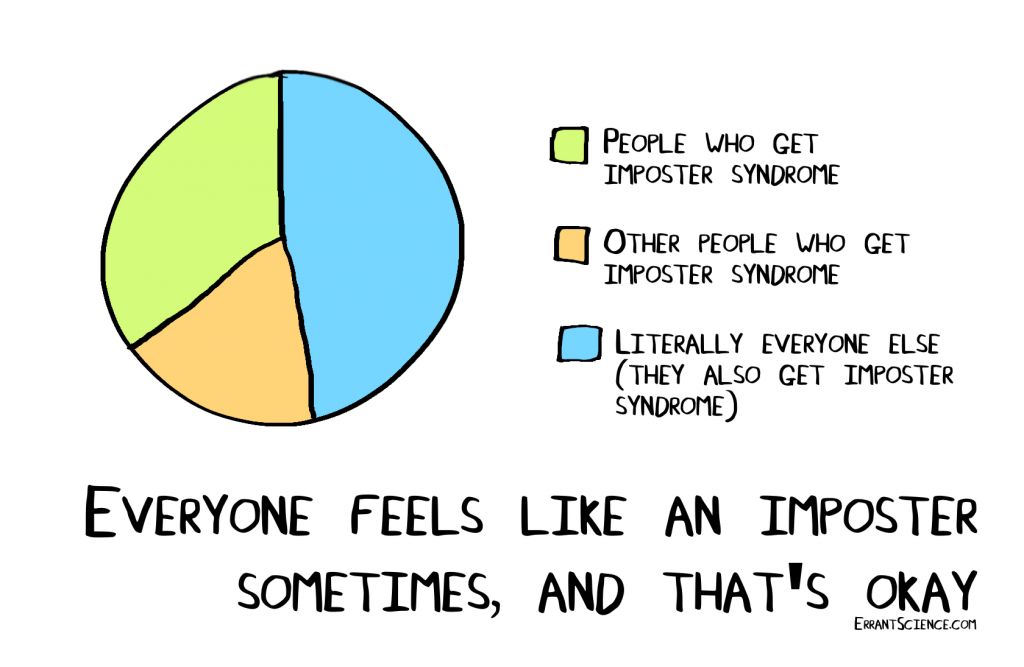 I almost didn’t apply to be a featured contributor for GovLoop. When I first saw the call for authors I got really excited, but immediately thought: “I don’t deserve to be picked, there are so many other well-qualified individuals.” I pushed through the negative mental feedback and applied anyway.
I almost didn’t apply to be a featured contributor for GovLoop. When I first saw the call for authors I got really excited, but immediately thought: “I don’t deserve to be picked, there are so many other well-qualified individuals.” I pushed through the negative mental feedback and applied anyway.
This wasn’t a new feeling for me; thoughts like this have found a way of showing up uninvited throughout my life.
It took me a long time to realize that what I was experiencing was due to impostor syndrome and that a lot of other people experience it too. Impostor syndrome is a psychological pattern in which an individual doubts their accomplishments and has a persistent internalized fear of being exposed as a “fraud.”
“The term “impostor syndrome” wasn’t coined until 1978 (by two American psychologists, Pauline Clance and Suzanne Imes), but it’s safe to assume that women have always felt it. It’s that nagging feeling that you’re not good enough, that you don’t belong, that you don’t deserve the job, the promotion, the book deal, the seat at the table.” – Ariel Davis
In a 2011 study, researchers found that 70% of people have struggled with impostor syndrome. And while it is not a diagnosable condition, it can result in negative mental health outcomes. It is especially common among high achievers, students and creative people. Additionally, researchers believe it hits minority groups harder.
If you’ve ever found yourself:
- Afraid to accept a new responsibility due to the fear of failing
- Find it difficult to accept praise or compliments
- Attributing your achievements to “luck”
- Feeling that others in a similar position are more qualified
Then you might be experiencing some facet of impostor syndrome.
For me, it’s a rollercoaster of realizing when I am having these thoughts and then figuring out what I am going to do about it.
Here are some helpful recommendations:
- Keep a record. Make a file of all the nice things people have said about you.
- Look at your accomplishments. Take a moment to step back and realize just how much you’ve actually accomplished.
- Take baby steps. Don’t focus on doing things perfectly, but rather do things reasonably well and reward yourself for taking action.
- Use social media in moderation. Remind yourself that social media is a curated, deliberate branding effort—not an honest and complete presentation of a person’s life.
- Stop fighting your feelings. Don’t fight the feelings of not belonging. Instead, try to lean into them and accept them. It’s only when you acknowledge them that you can start to unravel those core beliefs that are holding you back.
- Refuse to let it hold you back. No matter how much you feel like you don’t belong, don’t let that stop you from pursuing your goals.
The best way to deal with it is to simply start talking about it. Feel free to share your experience with impostor syndrome in the comments.
If you’re experiencing chronic feelings of anxiety or depression, or find yourself unable to function in daily life, please do seek out assistance.
You may also be interested in Things You Can Learn From Your Imposter Syndrome.
Kaytee Smith is a GovLoop Featured Contributor. She brings more than 10 years of digital communications and outreach experience to her role as Chief Content Officer at the North Carolina Department of Natural and Cultural Resources, where she helps tell North Carolina’s story and oversees the department’s editorial and content production team. She has a full spectrum of experience across platforms, including video and emerging social media, and works with divisions across the state on digital initiatives and content strategy. You can read her posts here.





This is really good and I can definitely relate to this. So important to be aware of.
Thank you, James. 🙂
Love the recommendations! Never thought about keeping a record, but I think that’s a good action tip.
Thank you, Pearl. I am glad they were helpful. 🙂